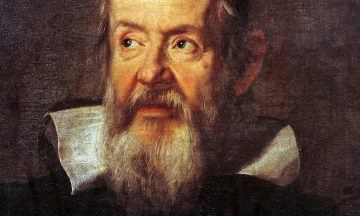Galen Strawson in The Guardian:
 There is no escape from this dilemma – either all matter is conscious, or consciousness is something distinct from matter”: Alfred Russel Wallace put the point succinctly in 1870, and it is hard to see how his colleague Charles Darwin, the great evolutionary gradualist, could disagree. Wallace, however, wanted us to have souls; he believed that consciousness was indeed distinct from matter. Darwin was a staunch materialist; he had no doubt that consciousness was wholly material. As early as 1838 he took it for granted that thought is “a secretion of brain”, using the word “thought” in Descartes’s way to cover any conscious experience. He wondered why people found this harder to believe than the fact that gravity is a property of matter. Darwin didn’t explicitly endorse panpsychism – the view that there is an element of consciousness in all matter, or, somewhat more cautiously, that consciousness is one of the fundamental properties of matter. But he saw the force of the position, and saw that it implied our profound ignorance of the nature of matter: “What is matter? the whole thing a mystery”. Certainly he understood the point that William James made in 1890: “If evolution is to work smoothly, consciousness in some shape must have been present at the very origin of things. Accordingly we find that the more clear-sighted evolutionary philosophers are beginning to posit it there.”
There is no escape from this dilemma – either all matter is conscious, or consciousness is something distinct from matter”: Alfred Russel Wallace put the point succinctly in 1870, and it is hard to see how his colleague Charles Darwin, the great evolutionary gradualist, could disagree. Wallace, however, wanted us to have souls; he believed that consciousness was indeed distinct from matter. Darwin was a staunch materialist; he had no doubt that consciousness was wholly material. As early as 1838 he took it for granted that thought is “a secretion of brain”, using the word “thought” in Descartes’s way to cover any conscious experience. He wondered why people found this harder to believe than the fact that gravity is a property of matter. Darwin didn’t explicitly endorse panpsychism – the view that there is an element of consciousness in all matter, or, somewhat more cautiously, that consciousness is one of the fundamental properties of matter. But he saw the force of the position, and saw that it implied our profound ignorance of the nature of matter: “What is matter? the whole thing a mystery”. Certainly he understood the point that William James made in 1890: “If evolution is to work smoothly, consciousness in some shape must have been present at the very origin of things. Accordingly we find that the more clear-sighted evolutionary philosophers are beginning to posit it there.”
Philip Goff’s engaging Galileo’s Error is a full‑on defence of panpsychism. It’s plainly a difficult view, but when we get serious about consciousness, and put aside the standard bag of philosophical tricks, it seems that one has to choose, with Wallace, between some version of panpsychism or fairytales about immaterial souls. This is of course too simple; Galileo’s Error lays out many of the complexities. It’s an illuminating introduction to the topic of consciousness. It addresses the real issue – unlike almost all recent popular books on this subject. It stands a good chance of delivering the extremely large intellectual jolt that many people will need if they are to get into (or anywhere near) the right ballpark for thinking about consciousness. This is a great thing.
More here.
